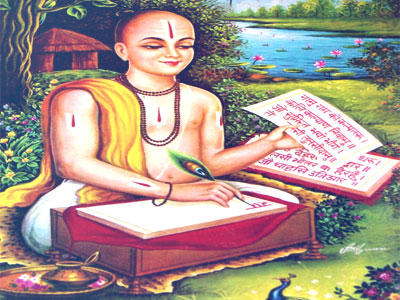George Washington : Leadership, Legacy, and Liberty
George Washington: George Washington served as a general and commander-in-chief of the colonial armies during the American Revolution, and later became the first president of the United States, serving from 1789 to 1797.

Essay Short Words “George Washington” Life HISTORY
George Washington: George Washington served as a general and commander-in-chief of the colonial armies during the American Revolution, and later became the first president of the United States, serving from 1789 to 1797.
George Washington was born on February 22, 1732, in Westmoreland County, Virginia. He lost his dad at age 11 and his relative, Lawrence, assumed control over that job. Washington’s mom was defensive and requesting, shielding him from joining the British naval force as Lawrence needed.
Lawrence owned Mount Vernon, and George lived with him from the age of 16. He was educated completely in Colonial Virginia and never set off for college. He was great at math which fit his picked calling of surveying.
In 1749, Washington was appointed as a surveyor for Culpeper County, Virginia after a trek for Lord Fairfax into the Blue Ridge Mountains. He was in the military from 1752-58 before being elected to the Virginia House of Burgesses in 1759.
George Washington: Founding Father and American Icon
He spoke against Britain’s policies and became a leader in the Association. From 1774-75 he attended both Continental Congresses. He drove the Continental Army from 1775-1783 during the American Revolution. He then became the president of the Constitutional Convention in 1787.
In spite of being an individual from the Federalist Party, in 1789, Washington was enormously well known as a war legend and was a conspicuous decision as to the primary president for both federalists and anti-federalists. He was unanimously elected by the 69 electors.
His sprinter up, John Adams, was named Vice President. In 1792, George Washington had the option to transcend the legislative issues of the day and convey each appointive vote – 132 from 15 states – to win a moment term. John Adams, as runner-up, remained the Vice President.
Washington could have been a king. Instead, he chose to be a citizen. He set numerous points of reference for the national government and the administration: The two-term limit in office, just broken once by Franklin Roosevelt, and afterward later tucked away in the Constitution’s 22nd Amendment.
He solidified the intensity of the administration as a piece of the administration’s three branches, ready to practice expert when fundamental, yet additionally, acknowledge the perceived leverage inherent in the system.
He was viewed as a military and progressive saint, yet a man of incredible individual respectability, with a profound feeling of obligation, respect, and patriotism. For over 200 years, Washington has been acclaimed as indispensable to the success of the Revolution and the birth of the nation.
But his most important legacy may be that he insisted he was dispensable, asserting that the cause of liberty was larger than any single individual. Washington’s significance cannot be overstated. He drove the Continental Army to triumph over the British. He put stock in a solid government which significantly affected the country during his eight years in office.
He didn’t enable others to trap him as sovereignty. He worked on the principle of merit. His warning against foreign entanglements was heeded by future presidents. By declining a third term, he set up the point of reference of a two-term limit.
Washington’s organization was one of the points of reference with numerous gauges that are still followed. He always relied on his cabinet for advice. Since his bureau arrangements went unchallenged, presidents are commonly ready to pick their very own cupboards.
Locally, Washington had the option to stop the main genuine test to government expert with the concealment of the Whiskey Rebellion in 1794. Pennsylvania farmers were refusing to pay a tax and he sent troops to ensure compliance.
In remote issues, Washington was an immense advocate of neutrality. He articulated the Proclamation of Neutrality in 1793 which communicated that the US would be impartial toward forceful forces as of now in a war.
This upset some who felt the US owed greater allegiance to France. His faith in lack of bias was repeated during his Farewell Address in 1796 where he cautioned against outside entrapments. This notice turned out to be a piece of the American political landscape.
Washington did not want to run a third time. He retired to Mount Vernon. He was again approached to be the American leader if the US did battle with France over the XYZ issue.
Be that as it may, battling never happened ashore and he didn’t need to serve. He passed on December 14, 1799, potentially from a streptococcal disease of his throat aggravated from being drained multiple times.
The updates on his passing spread all through the nation, diving the country into a profound grieving. Many towns and cities held mock funerals and presented hundreds of eulogies to honor their fallen hero.
When the news of this death reached Europe, the British fleet paid tribute to his memory, and Napoleon ordered ten days of mourning. George Washington is considered one of the most important and influential presidents of America of all time whose legacy still lives on today.





